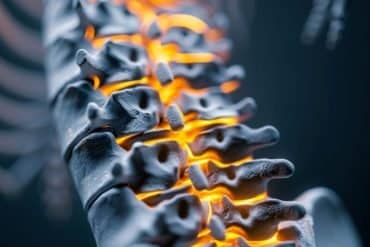It is known that sleep facilitates the formation of long-term memory in humans. In a new study, researchers from Uppsala University, Sweden, now show that sleep does not only help form long-term memory but also ensures access to it during times of cognitive stress.
It is well known that during sleep newly learned information is transferred from short-term to long-term memory stores in humans. In the study that is now being published in the scientific journal SLEEP, sleep researchers Jonathan Cedernaes and Christian Benedict, sought to investigate the role of nocturnal sleep duration for this memory transfer, and how long-term memories formed by sleep remain accessible after acute cognitive stress.
Following a learning session in the evening during which 15 participants learned 15 card pair locations on a computer screen, in one experimental session subjects slept for half a night (4-hr) and in the other for a full night (8-hr). The next morning subjects were asked to recall as many card pair locations as possible. What the researchers found was that half a night of sleep (4-hr) was as powerful as a full night of sleep (8-hr) to form long-term memories for the learned card pair locations.
However, the study also revealed that stress had an impact on the participants’ ability to recall these memories. The men were acutely stressed for 30 minutes in the morning after a half or full night of sleep (for example by having to recall a newly learnt list of words while exposed to noise). Following short sleep this stress exposure reduced their ability to recall these card pair locations by around 10 percent.
In contrast, no such stress-induced impairment was seen when the same men were allowed to sleep for a full night.

“On the basis of our study findings, we have two important take home messages: First, even though losing half a night of sleep may not impair memory functions under baseline conditions, the addition of acute cognitive stress may be enough to lead to significant impairments, which can possibly be detrimental in real-world scenarios. Second, interventions such as delaying school start times and greater use of flexible work schedules, that increase available snooze time for those who are on habitual short sleep, may improve their academic and occupational performance by ensuring optimal access to memories under stressful conditions”, says Jonathan Cedernaes, researcher at the Department of Neuroscience, Uppsala University.
“An important next step will be to investigate how chronic sleep loss and or more chronic stress may interact to impair the ability to retrieve memories that are consolidated during sleep”, says Jonathan Cedernaes.
Funding: The researchers are supported by the Swedish Brain Foundation, Swedish Research Council, AFA Försäkring, and Novo Nordisk Foundation.
Source: Uppsala University
Image Credit: The image is credited to Psy3330 W10 and is licensed Creative Commons Attribution-ShareAlike 3.0
Original Research: The research will be published in the journal Sleep during the week of July 13 2015. We will provide a link to the research when it becomes available.






